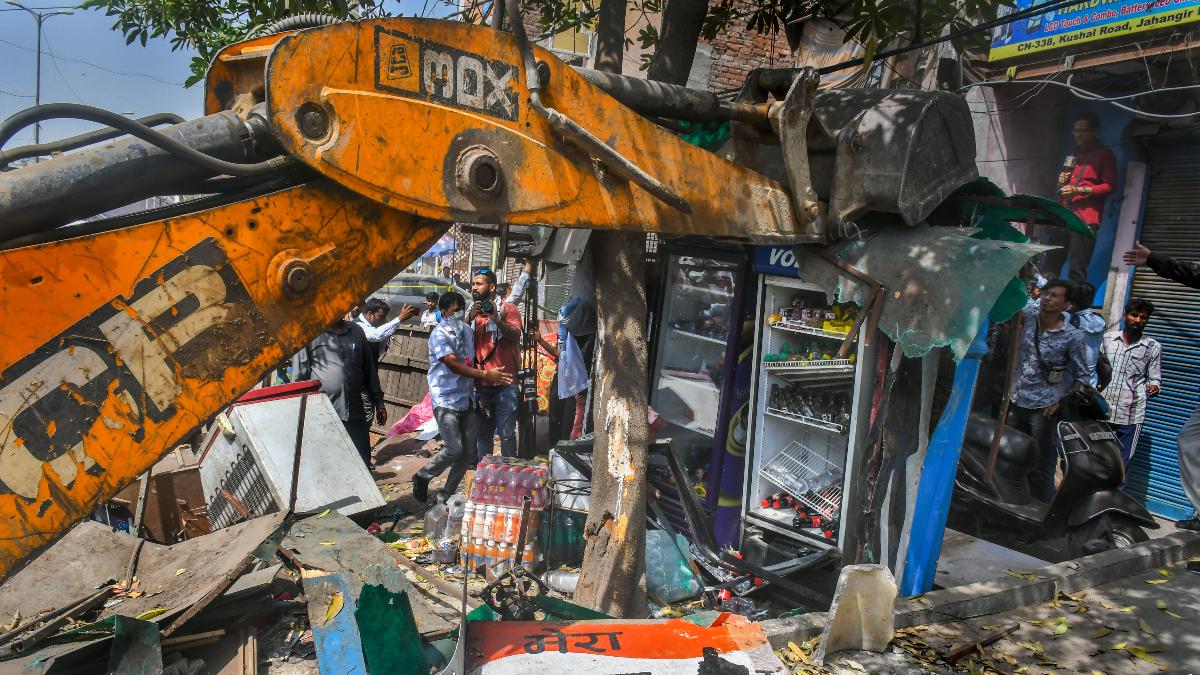Administrative Non-Compliance: Lessons from the Supreme Court's Summons to DDA Vice-Chairman
By Grien Law Chamber | March 29, 2025
In a significant development highlighting the judiciary's commitment to urban governance and rule of law, the Supreme Court of India has directed the Vice-Chairman of the Delhi Development Authority (DDA) to personally appear before it and explain the non-compliance with previous court orders regarding illegal structures on public land in the national capital.
This directive comes as part of the apex court's continued oversight on unauthorized constructions and encroachments on public land, reinforcing the critical importance of adherence to judicial mandates by administrative authorities.
Background of the Case
The Supreme Court has been monitoring actions against unauthorized constructions and encroachments on public land in Delhi for several years. Despite issuing multiple directives to the DDA to take decisive action against such illegal structures, the court observed significant delays and apparent reluctance in implementation.
The court noted that despite clear and unambiguous orders, the DDA had failed to demonstrate substantial progress in removing encroachments and preventing new illegal constructions from emerging on public land designated for community use, parks, and other essential urban infrastructure.
The Court's Observations
During the hearing, the bench expressed strong displeasure over what it termed as "deliberate inaction" on the part of the DDA. The justices remarked that such non-compliance not only undermines the authority of the judiciary but also contributes to the deterioration of urban planning and public spaces in the capital.
"When statutory authorities like the DDA fail to implement court orders in letter and spirit, it creates a dangerous precedent that encourages further violations. Public lands are held in trust for the benefit of citizens, and allowing encroachments to continue despite judicial intervention represents a serious abdication of responsibility."
Implications for Urban Governance
This case highlights several critical issues in urban governance:
- Accountability of Public Officials: By summoning the Vice-Chairman personally, the Court has emphasized that senior officials cannot escape accountability for implementation failures.
- Protection of Public Spaces: The judgment reinforces the importance of preserving public lands against illegal occupation and unauthorized construction.
- Rule of Law: The Court's action sends a clear message that administrative authorities must respect and implement judicial directives promptly.
- Urban Planning Integrity: By insisting on action against encroachments, the Court is protecting the integrity of urban planning frameworks essential for sustainable city development.
Legal Analysis
From a legal perspective, this case illustrates the tension between administrative discretion and judicial oversight. While executive authorities like the DDA have operational autonomy, they remain accountable to the judiciary when their actions (or inaction) contradict established legal principles or court directives.
The Court's decision to summon the Vice-Chairman directly reflects the application of the principle that contempt powers can be exercised when there is willful disobedience of court orders, particularly in matters affecting public interest.
Potential Outcomes
As this matter proceeds, several outcomes are possible:
- The DDA may accelerate compliance efforts before the hearing to demonstrate good faith.
- The Court may impose stringent timelines for action with monitoring mechanisms.
- Depending on the explanation offered, the Court might consider initiating contempt proceedings if deliberate non-compliance is established.
- This case could potentially lead to broader policy reforms in how urban development authorities address illegal constructions.
Conclusion
This development underscores the judiciary's role as the guardian of public interest and the rule of law. It serves as a reminder that administrative authorities must prioritize compliance with judicial directives, particularly in matters concerning public lands and urban planning.
For stakeholders involved in urban development, real estate, and public policy, this case represents an important precedent in the ongoing efforts to ensure planned and legal development in India's rapidly growing urban centers.
About Grien Law Chamber
Grien Law Chamber is a full-service law firm based in Chennai with expertise across diverse legal disciplines including constitutional law, property law, urban development, and administrative law. Our team of specialized advocates brings decades of combined experience in handling complex litigation and advisory matters at all levels of the Indian judicial system.
For consultation on matters related to property law, urban development regulations, or administrative law compliance, contact our specialized team at Grien Law Chamber.
Disclaimer: This blog post is for informational purposes only and does not constitute legal advice. For specific legal guidance, please consult with a qualified Advocate.

